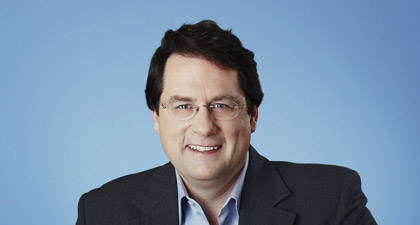MONTREAL — The proposed Quebec charter of values is “temperate and reasonable” and in keeping with the Parti Québécois’ “inclusive nationalism,” says the minister responsible for promoting the legislation.
The criticism that the proposed charter is exclusionist and discriminatory against Quebec’s religious minorities is “unjust and unfounded,” Bernard Drainville, the provincial minister of democratic institutions and citizenship participation told The CJN in a French-language interview.
Click to read a Q&A with the minister in French
The charter is “based on the fundamental principle that all those who live in Quebec are Quebecers, no matter what their origin, their religion or the colour of their skin,” Drainville said.
“We are all Quebecers. The nationalism vigorously defended by the Parti Québécois is inclusive and open to differences… and totally opposite to the divisive nationalism described by the critics. The charter of values… is an extension of the inclusive nationalism to which the Parti Québécois has subscribed for a very long time.”
As for criticism from English Canadians outside Quebec, Drainville said he’d like to remind them of a major historical fact they may have forgotten.
“In 1832, the parliament of Lower Canada was the first of any government in the British Empire to recognize, for the first time, the civil rights of the Jewish community. The parliament consisting mainly of French-Canadians – as they were then called – allowed Ezekiel Hart, a man of Jewish origin elected in Trois-Rivières to sit in the legislative assembly…
“The Jewish community has been an integral part of Quebec for a very long time, since they settled here in the late 1700s. They have made a major contribution to the development and evolution of Quebec society… and we believe that they continue to be an extremely important part of Quebec society today.”
As for the prohibition against public sector workers wearing overt religious symbols – such as kippot, hijabs and crosses – Drainville said it’s not discriminatory because “its application will be limited strictly to working hours.
“The state in no way whatsoever wants to confine or interfere with the religious convictions or morals of our citizens when they are not [employees] of the state.”
It was this conviction that led the government to “confine the proposed neutrality” to these situations only, he said.
“For example, there was never any question of… limiting the wearing of religious symbols in the public sphere, as the French did with the full veil… Neither was there ever any question of limiting the wearing of religious symbols by ordinary citizens. In France, they forbade the wearing of ostentatious religious symbols in classrooms… Let’s be clear: the restriction on wearing overt religious symbols will be limited only to the state and to employees of the state.”
Asked about the likely effect the new legislation would have on Montreal’s almost 100-year-old Jewish General Hospital, Drainville stressed that “for the Parti Québécois government, the Jewish General Hospital is a jewel of the Montreal community and of Quebec society. The hospital is an institution that has huge credibility and adds greatly to the richness of the Quebec health and social services network.
“We are very conscious of the socio-historic circumstances that led to the creation of the Jewish General in the ’30s: Jewish doctors did not have the right to practise their profession in the other Quebec hospitals. There were also members of the Jewish community who had problems being treated in some hospitals,” he added.
“We want the Jewish General Hospital to keep its identity and its personality. There is absolutely no question of jeopardizing the identity of this important health-care institution. Besides, we have taken note of the wishes of the Jewish General Hospital to exercise its right of withdrawal [from the requirements of the charter], renewable, as provided in the proposal… currently on the table. This would permit the employees of the Jewish General Hospital to continue to wear religious symbols within their workplace.”
Nevertheless, Drainville recently said that he hopes public institutions, including the JGH, that take advantage of the proposed charter’s opt-out clause won’t do so forever and that they’ll accept the new reality.
Asked whether there’s a contradiction between recognizing the JGH as distinct and expecting it to eventually adapt to the charter, the minister said, “All I can say at this stage is that we’re very conscious of the distinctive, special character of the hospital. Our intention is not to question in any way the identity of this renowned institution, which we value very highly.”
This article was translated from a French story in this week’s Montreal edition of The CJN.
